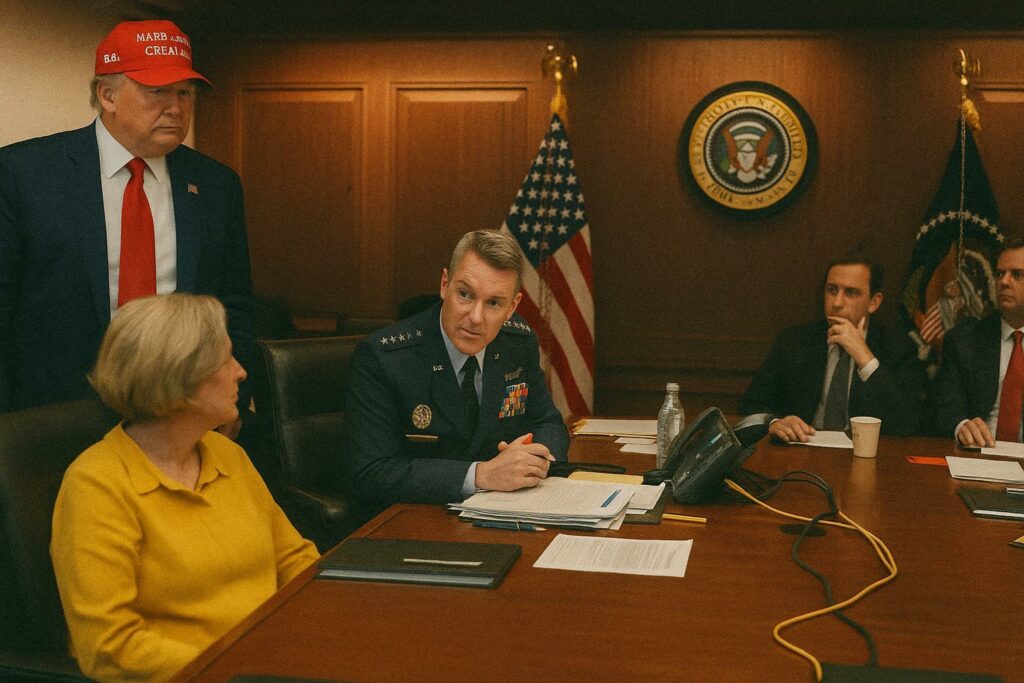A Precipice of Conflict
The United States’ decision to launch strikes on Iranian nuclear facilities, specifically targeting Fordow, Natanz, and Isfahan, marks a pivot towards significant escalation in the already volatile relationship between Washington, Tehran, and Tel Aviv. Spearheaded by Donald Trump’s return to the White House with a hawkish foreign policy, this action is unequivocally a step toward open conflict with Iran, bespeaking profound strategic, regional, and global repercussions.
Trump’s Calculated Escalation
Dubbed a decisive victory by former President Donald Trump, the strikes have been touted as a preventive measure to avert Iran’s future nuclear ambitions. Trump’s rhetoric underscores a strategic deterrence, emphasizing military might over diplomatic engagement, sidelining United Nations resolutions. By asserting American dominance via military actions, Trump aims to reaffirm the U.S.’s role as the leader of the ‘free world,’ even at the expense of international norms.
Israel’s Unwavering Support
In solidarity, Israeli Prime Minister Benjamin Netanyahu lauded the bold American action, affirming close cooperation between U.S. and Israeli forces. As a precautionary measure, Israel has closed its airspace, reflecting a heightened state of alert against possible Iranian counterattacks or proxy missile launches from Lebanon, Syria, or Yemen.
Iran’s Strategic Patience
The narrative emerging from Iran seeks to downplay the extent of the damage, possibly to forestall internal panic and maintain strategic leverage. Historical context suggests that Iran, particularly the Revolutionary Guards, prefers calculated, asymmetrical responses rather than immediate retaliation. Already, allied Houthi forces in Yemen have vowed consequences against American actions.
Global Diplomatic Tremors
UN Secretary-General Antonio Guterres has warned that this ‘dangerous escalation’ threatens to engulf the Middle East in widespread conflict. By violating established norms regarding nuclear non-proliferation, the U.S. not only tests the fragile fabric of international treaties but risks durable rifts within the Security Council as well.
A Cavernous Divide
The strikes invite questions about transitioning from a covert regional dispute characterized by cyber warfare and targeted strikes to an open, multifaceted war. Potential hotspots like southern Lebanon, the Strait of Hormuz, and American bases across the Gulf could ignite, necessitating stances from global powers like China, Russia, and rising nations such as Turkey or India.
Implications for Africa
Africa, while geographically removed, may suffer collateral damage from escalating tensions: increased oil prices, disrupted supply chains, currency pressures, and heightened risks for UN missions in volatile regions like the Sahel. The continent remains enmeshed in the geopolitical fault lines, irrespective of their distant origins.

